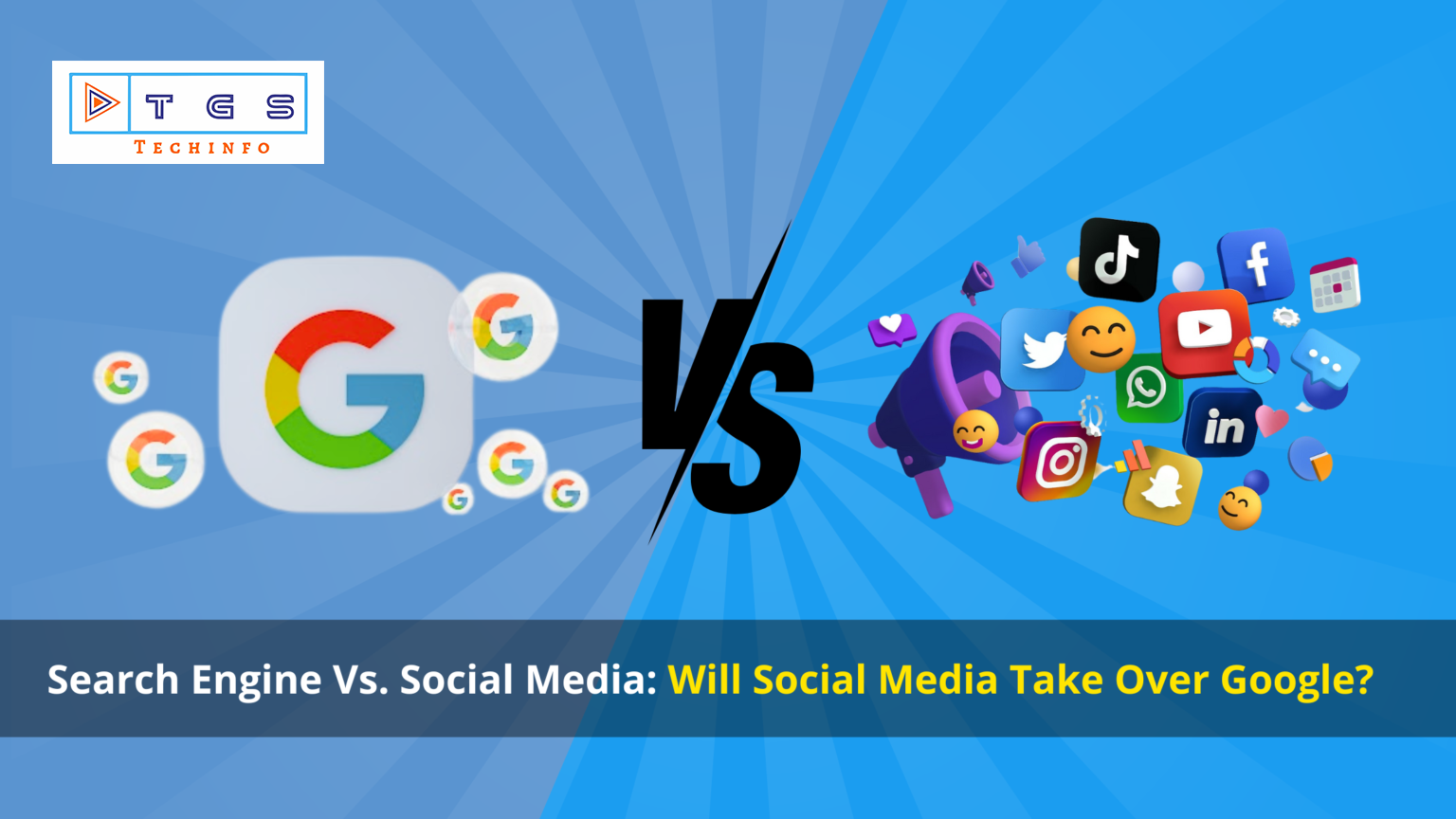If you belong to an older demographic, your go-to for information is likely Google, whether it’s searching for a definition, delving into the history of a country, or finding your favorite products. However, for teens and those in their twenties, Google might not be the primary source.
Recent research indicates a notable shift in preferences among individuals under 34 in the Search Engine vs. Social Media dynamic. This younger demographic tends to favor visually oriented social media platforms like TikTok, Instagram, or YouTube. These platforms have become their preferred channels for exploring diverse topics, discovering individuals, researching places, and even evaluating potential schools that align with their goals and personalities.
Social Media Competing with Google
Google’s research reveals that almost 40% of young folks looking for places to eat or have fun prefer using TikTok or Instagram over Google Maps or Search. Prabhakar Raghavan, a big shot at Google, mentioned at Fortune’s 2022 Brainstorm Tech conference, ‘We keep learning that new Internet users think differently than we do. The questions they ask are completely different.
Now, when we compare search engines like Google to social media platforms, here’s a surprising fact: as of June 2023, federal and state employees in 34 out of 50 states are not allowed to use TikTok on government devices. That’s a big deal! And in May 2023, something else happened.
Decoding Distinctions: Navigating the Dynamics of Search Engine vs. Social Media
In the dynamic expanse of online platforms, the imperative to discern profound disparities between search engines and social media becomes even more crucial for businesses shaping and refining their digital strategies. This comprehensive exploration takes a deep dive into intricate differences, shedding light on user intent, content discovery mechanisms, and advertising models.
A. User Intent and Behavior
Search Engines:
– User intent on search engines is overtly explicit, fueled by specific queries with the aim of information retrieval.
– Google, serving as a primary hub, witnesses an astounding nearly 70,000 searches per second, embodying a nexus for active information-seeking behavior.
Social Media:
– User intent on social media takes a more implicit route, steered by social interactions and the allure of content discovery.
– Platforms such as Facebook, with users dedicating an average of 58.5 minutes daily, cultivate passive engagement with a focus on social connections.
Comprehending and adapting to these user behaviors becomes paramount for crafting content strategies that seamlessly resonate on each distinctive platform.
B. Algorithmic vs. Social Algorithm-Driven Content Discovery
Search Engines:
– Content discovery in search engines leans heavily on intricate algorithms that meticulously analyze keywords, relevance, and authority.
– Google’s monumental algorithm processes a staggering 3.5 billion searches daily, emphasizing the prioritization of precise, authoritative, and relevant information delivery.
Social Media:
– Social media platforms chart a different course, employing social algorithms for content curation rooted in user behavior and individual preferences.
– Platforms like Instagram strategically tailor visibility using factors such as user interactions, placing a premium on engagement with individual interests.
Navigating these nuanced intricacies in content discovery proves pivotal for crafting content that resonates, aligning seamlessly with user expectations and the dynamic landscape of each platform.
C. Paid Advertising Models on Google vs. Social Media Platforms
Search Engines (Google):
– The paid advertising landscape in search engines revolves primarily around pay-per-click (PPC) models.
– Google Ads, with an average click-through rate (CTR) of approximately 3.17%, accentuates precision through keyword targeting.
Social Media Platforms:
– Social media presents a canvas of diverse advertising models, spanning sponsored posts, display ads, and influential collaborations.
– Platforms like Facebook, boasting an advertising revenue of $84.17 billion in 2020, epitomize the expansiveness and revenue potential of the social media advertising domain.
Grasping the intricacies of these advertising models becomes pivotal for strategic marketing endeavors. Precision and bid strategies take center stage on Google, while the dynamic landscape of social media platforms offers versatility. Platforms like Facebook underscore the vast reach and revenue potential, demanding a nuanced alignment of strategies to ensure optimal budget utilization and heightened visibility across the diverse digital landscapes of the online realm.
The Dominance of Social Media in Search Engine vs. Social Media Dynamics
In the ongoing debate of Search Engine vs. Social Media, the prominence of social media as an information hub continues to rise, presenting a paradigm shift in user behavior. Diverse and Specialized Networks within social media platforms play a pivotal role, offering tailored spaces for users with varied interests and purposes. Niche communities thrive, fostering engagement around specific topics, and creating a dynamic landscape far beyond the capabilities of traditional search engines.
Speed and Convenience further bolster the sway of social media in this ongoing comparison. The efficiency of searching within these platforms, facilitated by the rapid functionality of mobile applications, outpaces conventional web searches. Users gravitate towards the accessibility and user-friendly nature of social network searches, redefining how they seek and consume information online.
Role of TikTok
TikTok, the rising star in this Search Engine vs. Social Media discourse, gains traction due to Short Attention Spans, catering to users with concise and engaging content. Unsatisfactory Google Results drive users towards alternative platforms like TikTok, seeking more engaging and relevant content. The platform’s Visual Learning Styles, emphasizing visual appeal, align with users favoring visual learning over traditional text-based search results.
Conclusion
The dominance of social media in the Search Engine vs. Social Media narrative is evident. Users find themselves navigating these platforms not just for information but for a holistic and personalized online experience, redefining the traditional paradigm of information retrieval.

